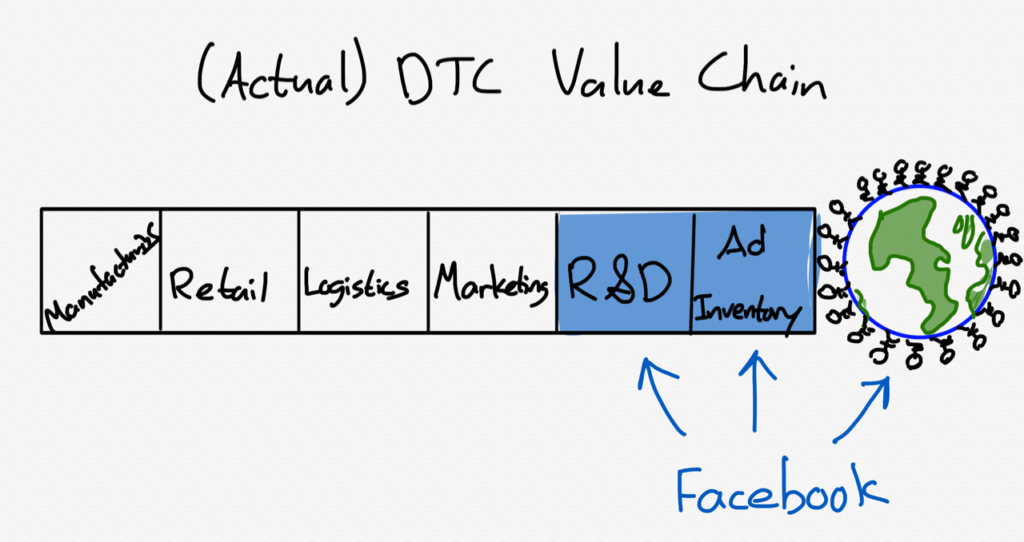One of the most important companies in making both of the non-Amazon value-chains work is Shopify, which is a platform, not an Aggregator. Google and Facebook may collect the customers, but it is Shopify (and WooCommerce, its open-source competitor) that provides the infrastructure for merchants to actually sell things online.

